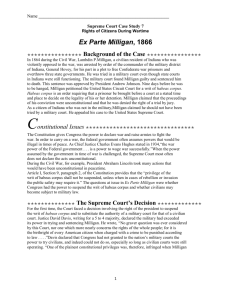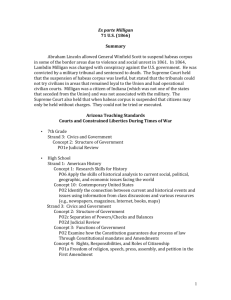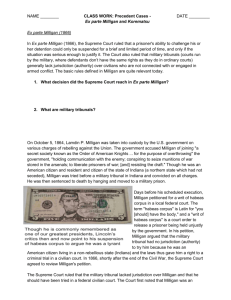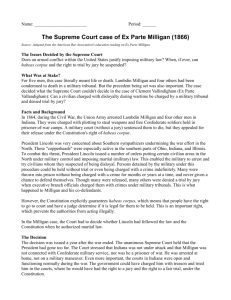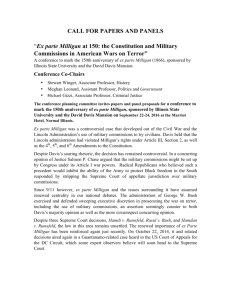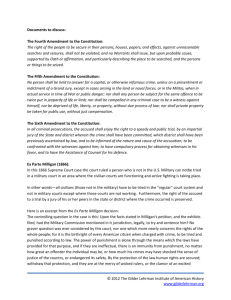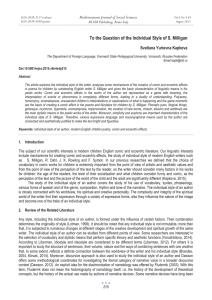Ex parte Milligan (1866) In Ex parte Milligan (1866), the Supreme
advertisement
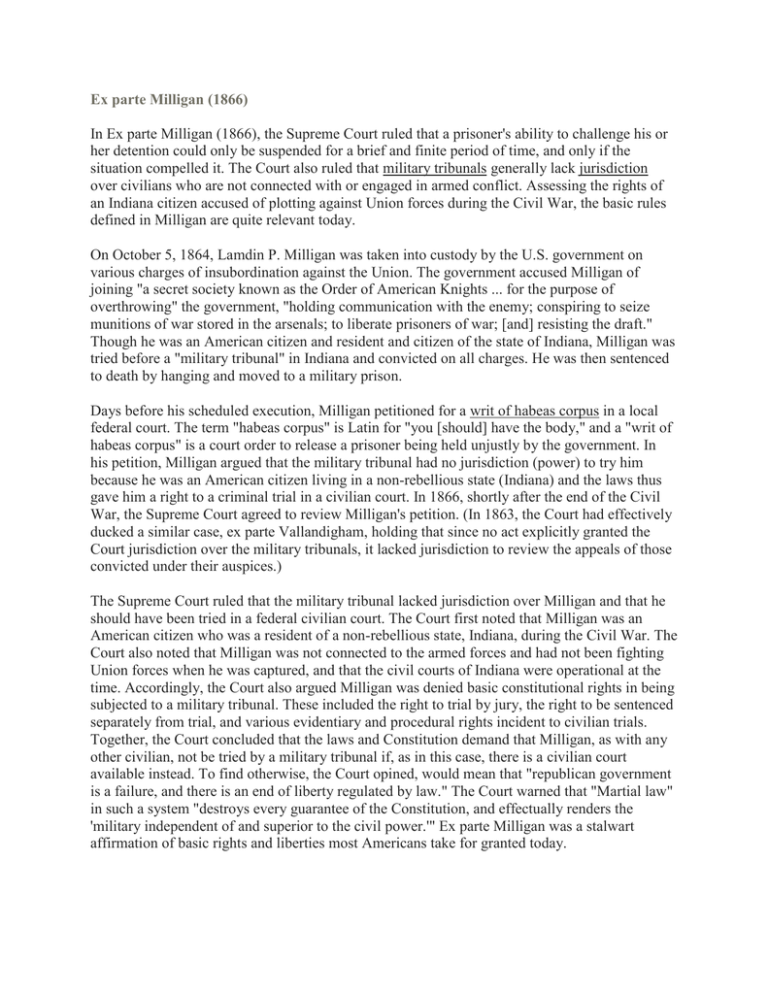
Ex parte Milligan (1866) In Ex parte Milligan (1866), the Supreme Court ruled that a prisoner's ability to challenge his or her detention could only be suspended for a brief and finite period of time, and only if the situation compelled it. The Court also ruled that military tribunals generally lack jurisdiction over civilians who are not connected with or engaged in armed conflict. Assessing the rights of an Indiana citizen accused of plotting against Union forces during the Civil War, the basic rules defined in Milligan are quite relevant today. On October 5, 1864, Lamdin P. Milligan was taken into custody by the U.S. government on various charges of insubordination against the Union. The government accused Milligan of joining "a secret society known as the Order of American Knights ... for the purpose of overthrowing" the government, "holding communication with the enemy; conspiring to seize munitions of war stored in the arsenals; to liberate prisoners of war; [and] resisting the draft." Though he was an American citizen and resident and citizen of the state of Indiana, Milligan was tried before a "military tribunal" in Indiana and convicted on all charges. He was then sentenced to death by hanging and moved to a military prison. Days before his scheduled execution, Milligan petitioned for a writ of habeas corpus in a local federal court. The term "habeas corpus" is Latin for "you [should] have the body," and a "writ of habeas corpus" is a court order to release a prisoner being held unjustly by the government. In his petition, Milligan argued that the military tribunal had no jurisdiction (power) to try him because he was an American citizen living in a non-rebellious state (Indiana) and the laws thus gave him a right to a criminal trial in a civilian court. In 1866, shortly after the end of the Civil War, the Supreme Court agreed to review Milligan's petition. (In 1863, the Court had effectively ducked a similar case, ex parte Vallandigham, holding that since no act explicitly granted the Court jurisdiction over the military tribunals, it lacked jurisdiction to review the appeals of those convicted under their auspices.) The Supreme Court ruled that the military tribunal lacked jurisdiction over Milligan and that he should have been tried in a federal civilian court. The Court first noted that Milligan was an American citizen who was a resident of a non-rebellious state, Indiana, during the Civil War. The Court also noted that Milligan was not connected to the armed forces and had not been fighting Union forces when he was captured, and that the civil courts of Indiana were operational at the time. Accordingly, the Court also argued Milligan was denied basic constitutional rights in being subjected to a military tribunal. These included the right to trial by jury, the right to be sentenced separately from trial, and various evidentiary and procedural rights incident to civilian trials. Together, the Court concluded that the laws and Constitution demand that Milligan, as with any other civilian, not be tried by a military tribunal if, as in this case, there is a civilian court available instead. To find otherwise, the Court opined, would mean that "republican government is a failure, and there is an end of liberty regulated by law." The Court warned that "Martial law" in such a system "destroys every guarantee of the Constitution, and effectually renders the 'military independent of and superior to the civil power.'" Ex parte Milligan was a stalwart affirmation of basic rights and liberties most Americans take for granted today. Author’s Bio Alex McBride is a third year law student at Tulane Law School in New Orleans. He is articles editor on the TULANE LAW REVIEW and the 2005 recipient of the Ray Forrester Award in Constitutional Law. In 2007, Alex will be clerking with Judge Susan Braden on the United States Court of Federal Claims in Washington.

